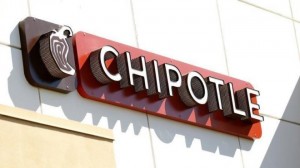
After Chipotle fake-hacked it’s own Twitter account, the social media world is up in arms. Was it beneficial? Was it a breach of trust for their customers? Either way, their immediate (perhaps temporary?) success cannot be denied.
With a series of tweets such as, “Hi sweetie, can you please pick up some lime, salt, and onions? Twitter” and “twitter Find avocado store in Arv,” both Chipotle’s followership and engagement increased. Chipotle saw a 453% increase over their daily average engagement (with almost 1500 retweets) and gained nearly 5,000 followers from the stunt.

While many followers obviously enjoyed the stunt, many people were left feeling that Chipotle pulled one over on them and were frustrated by their actions. Chipotle spent most of the day following the tweets defending their actions. Still, their followers remain higher post-stunt than they were before they started, thus blurring the aforethought solid rules of social media: trust & transparency.
So, that leads me to the question – how important are trust and transparency on social media really? I’m not saying that brands should throw out the idea of showing up as authentic as possible in the digital world, but Chipotle has definitely pushed the boundaries of trust – and succeeded (if we measure success in terms of engagement & followers). Sure, they may have made people mad and lost a portion of followers along the way, but clearly more people showed approval of their breach than those who didn’t. Was it the entertainment value that outweighed the lack of transparency? Did people engage and start to follow Chipotle merely to not miss out on the next stunt, despite Chipotle’s authenticity? Or perhaps Chipotle’s breach of authenticity wasn’t one at all but was redeemed by the fact that they did finally admit to the stunt shortly after it happened. Whatever it was, it was a risky thing for a brand to do and pushed the boundaries of the cardinal rules of social media success.



Sorry, the comment form is closed at this time.